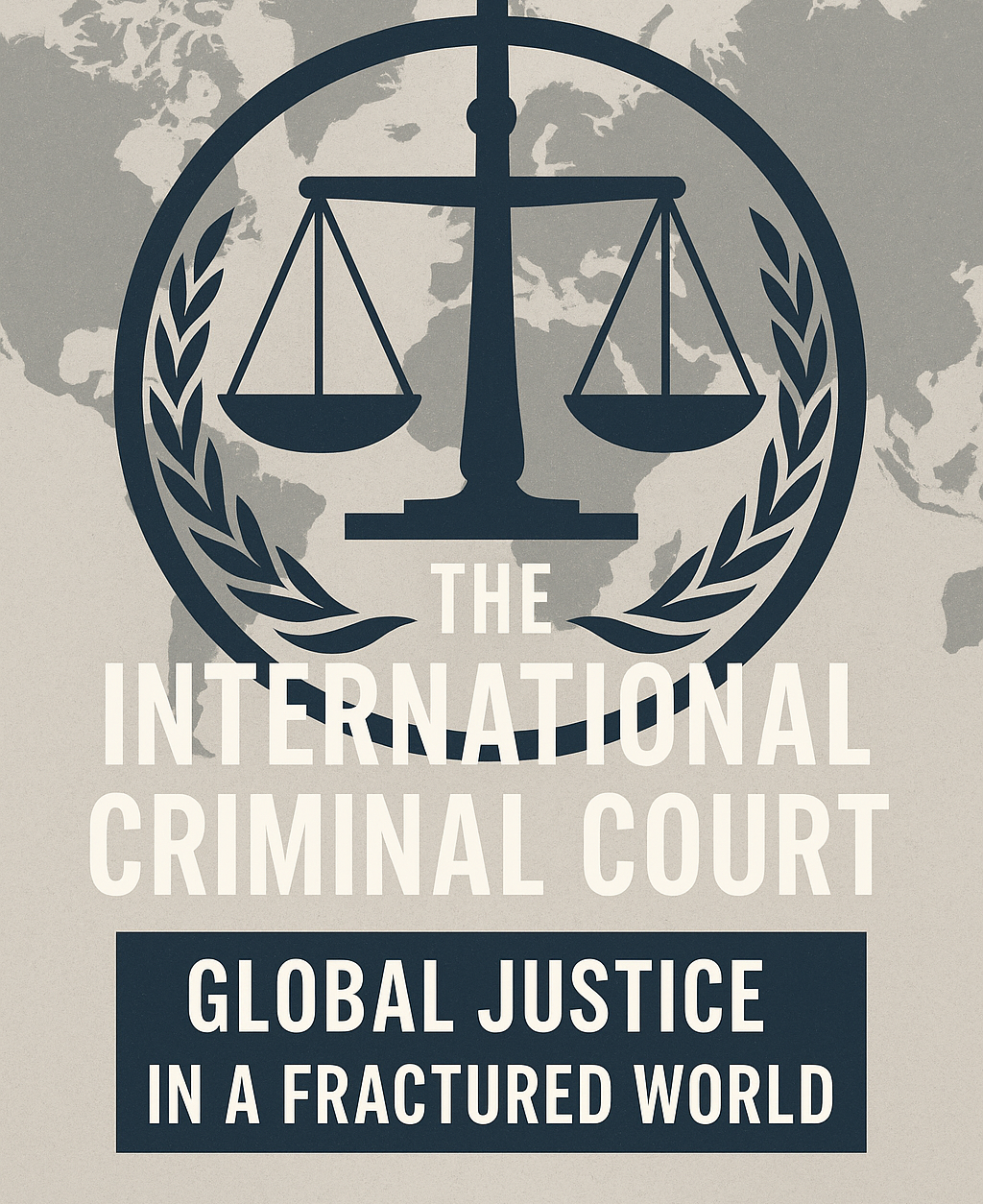The International Criminal Court: Global Justice in a Fractured World
The International Criminal Court: Global Justice in a Fractured World
In a world plagued by war, persecution, and crimes against humanity, the pursuit of justice can no longer be constrained within national borders. Mass atrocities, once buried in silence or dismissed as “internal matters,” are now subjects of global concern. The emergence of the International Criminal Court (ICC) marked a transformative moment in international law—one that endeavored to shift accountability for the gravest crimes from state sovereignty to international scrutiny.
This blog explores the origin, purpose, structure, successes, criticisms, and future of the ICC in detail, providing a comprehensive understanding of one of the most ambitious legal institutions of the 21st century.
1. The Genesis of the ICC: From Nuremberg to Rome
The concept of an international tribunal to punish individuals for atrocities dates back to the Nuremberg and Tokyo Trials after World War II, where Nazi and Imperial Japanese leaders were prosecuted for crimes against peace, war crimes, and crimes against humanity. These tribunals set historical precedents, yet they were ad hoc in nature and deeply influenced by the victors of the war.
The horrors of Rwanda (1994) and former Yugoslavia (1990s) catalyzed further action. In response, the United Nations established temporary tribunals, but the need for a permanent and impartial judicial body became increasingly evident. This momentum led to the drafting of the Rome Statute in 1998, a treaty signed by 120 countries, which formally established the International Criminal Court.
The Statute came into force on 1 July 2002, thereby inaugurating the ICC.
2. The Mandate and Jurisdiction of the ICC
The ICC operates as a court of last resort, stepping in only when national courts are unwilling or unable to prosecute serious crimes. It does not override national jurisdictions but rather complements them under the principle of complementarity.
The Four Core Crimes under the Rome Statute:
1. Genocide
Intentional acts committed to destroy, in whole or in part, a national, ethnic, racial, or religious group.
2. Crimes Against Humanity
Widespread or systematic attacks directed against civilians, such as murder, rape, enslavement, forced disappearance, and apartheid.
3. War Crimes
Grave breaches of the Geneva Conventions during armed conflict, including the targeting of civilians, use of prohibited weapons, or conscription of child soldiers.
4. The Crime of Aggression
The planning, preparation, initiation, or execution of an act of aggression that violates the sovereignty of another state.
3. Structure and Functioning of the ICC
The ICC comprises four main organs:
- The Presidency: Consists of the President and two Vice-Presidents, responsible for administration and representing the court
- Judicial Divisions: Includes the Pre-Trial, Trial, and Appeals Chambers, composed of 18 judges elected by the Assembly of States Parties.
- Office of the Prosecutor (OTP): An independent organ led by the Chief Prosecutor, responsible for investigating and prosecuting The OTP assesses referrals and initiates proceedings based on gravity and admissibility.
- Registry: Handles the court’s non-judicial aspects, including defense support, public outreach, and victim participation.
The ICC’s procedural framework includes safeguards such as presumption of innocence, fair trial rights, legal representation, and victim reparations—a novel feature among international tribunals.
4. Key Cases and Jurisprudence
Since its inception, the ICC has opened more than 30 cases across situations in Africa, Asia, the Middle East, and Europe. Some notable cases include:
Thomas Lubanga Dyilo (DRC)
The first person to be convicted by the ICC, found guilty of recruiting and using child soldiers in the Democratic Republic of Congo. He was sentenced to 14 years in prison in 2012.
Omar al-Bashir (Sudan)
The ICC issued arrest warrants against the former Sudanese President for genocide and crimes against humanity in Darfur. Despite being indicted, Al- Bashir traveled to multiple countries without arrest, highlighting the court’s enforcement limitations.
Uhuru Kenyatta and William Ruto (Kenya)
Both faced charges for post-election violence in 2007–2008. The cases collapsed due to lack of evidence and allegations of witness intimidation, raising questions about the ICC’s procedural robustness.
Vladimir Putin (Russia)
In 2023, the ICC issued an arrest warrant against President Putin for the
forcible transfer of Ukrainian children, considered a war crime under
international law. This bold move, though largely symbolic due to Russia’s non-membership, signaled the court’s willingness to challenge powerful actors.
Philippines (Rodrigo Duterte)
The court has considered investigating extrajudicial killings linked to the “war on drugs,” even though the Philippines withdrew from the ICC in
2019, prompting legal debate on the court’s temporal jurisdiction.
These cases demonstrate the ICC’s potential to enforce individual criminal accountability, although their outcomes often expose the court’s political and operational vulnerabilities.
5. Criticisms and Controversies
Despite its noble mission, the ICC has faced persistent criticism from both member states and external observers.
1. Accusations of African Bias
The court has been accused of disproportionately targeting African leaders, leading to allegations of neocolonialism. Though many African cases were referred by the countries themselves or the UN Security Council, the perception of racial and geopolitical imbalance persists. Countries like South Africa and Burundi have even threatened or completed withdrawals from the Rome Statute.
2. Lack of Universal Jurisdiction
Powerful nations like the United States, Russia, China, and India have either signed but not ratified or completely rejected the Rome Statute, thereby shielding their nationals from ICC scrutiny. This undermines the universality and impartiality of the court.
3. Political Manipulation
The ICC’s reliance on Security Council referrals makes it susceptible to geopolitical interests. Permanent members (P5) like China and Russia can veto referrals, as seen in Syria, where grave crimes have gone unprosecuted.
4. Operational Inefficiency
ICC proceedings are often slow, costly, and marred by evidentiary challenges, witness tampering, and lack of cooperation. In over two decades, the court has secured fewer than 10 convictions, prompting questions about its cost- effectiveness and institutional design.
6. Victims and Reparations: A Unique Contribution
A notable strength of the ICC lies in its victim-centered approach. Unlike earlier tribunals, the Rome Statute provides for victim participation during trials and access to reparations through the Trust Fund for Victims (TFV). This allows for both symbolic and material redress, including:
- Compensation
- Rehabilitation
- Community-based support programs
Though underfunded, this mechanism acknowledges the dignity and rights of survivors and aligns justice with human healing.
7. The ICC and the Future of Global Justice
The ICC’s future hinges on reform, resilience, and renewed international commitment. Several areas demand attention:
1. Broadening Membership
Greater global participation, especially by influential states, would enhance the ICC’s legitimacy and effectiveness.
2. Strengthening Enforcement
Without its own enforcement arm, the ICC relies on state cooperation. Building institutional mechanisms or treaties for international arrest warrants and extradition could improve compliance.
3. Judicial Reform
To address inefficiencies, the ICC must streamline case procedures, ensure
protection of witnesses, and strengthen case management systems.
4. Depoliticization
Reducing reliance on the UN Security Council and creating more independent referral mechanisms could protect the court from political manipulation.
5. Expanding Jurisprudence
The ICC must adapt to evolving global challenges, such as cyber warfare, ecocide (destruction of the environment), and transnational crimes that increasingly demand international legal oversight.
Conclusion: Justice on a Global Scale
The International Criminal Court stands as a landmark experiment in global justice. While far from perfect, it embodies a radical departure from centuries of impunity, holding individuals—not just nations—accountable for the most egregious crimes.
In a world where violence and oppression often go unpunished, the ICC offers a fragile yet vital hope. It reminds us that international law is not just an abstraction, but a living framework that can restrain the worst impulses of power and restore some measure of dignity to victims.
To truly succeed, the ICC needs not only legal authority, but political courage, moral clarity, and a collective will to place justice above geopolitics. Whether it becomes a pillar of a more just world or a relic of idealism will depend on how the global community chooses to engage with it in the years ahead.
References
- Bass, J. (2000). Stay the Hand of Vengeance: The Politics of War Crimes Tribunals. Princeton University Press.
- United (1993 & 1994). Statutes of the ICTY and ICTR. Retrieved from https://www.un.org
- United (1998). Rome Statute of the International Criminal Court. Retrieved from https://www.icc-cpi.int/resource-library
- Amendments on the Crime of Aggression (2010). Kampala Review
- Bolton, R. (2000). The Risks and Weaknesses of the International Criminal Court from America’s Perspective. Law and Contemporary Problems, 64(1), 167–180.
- International Criminal (2024). Structure of the Court. https://www.icc-cpi.int/about
First author : Ishant , 2nd semester , LLM , SRM university, Delhi NCR sonipat , haryana
Second Author : Dr. Anjali dixit , associate professor , faculty of law, SRM university , Delhi NCR , Sonipat, Haryana .


